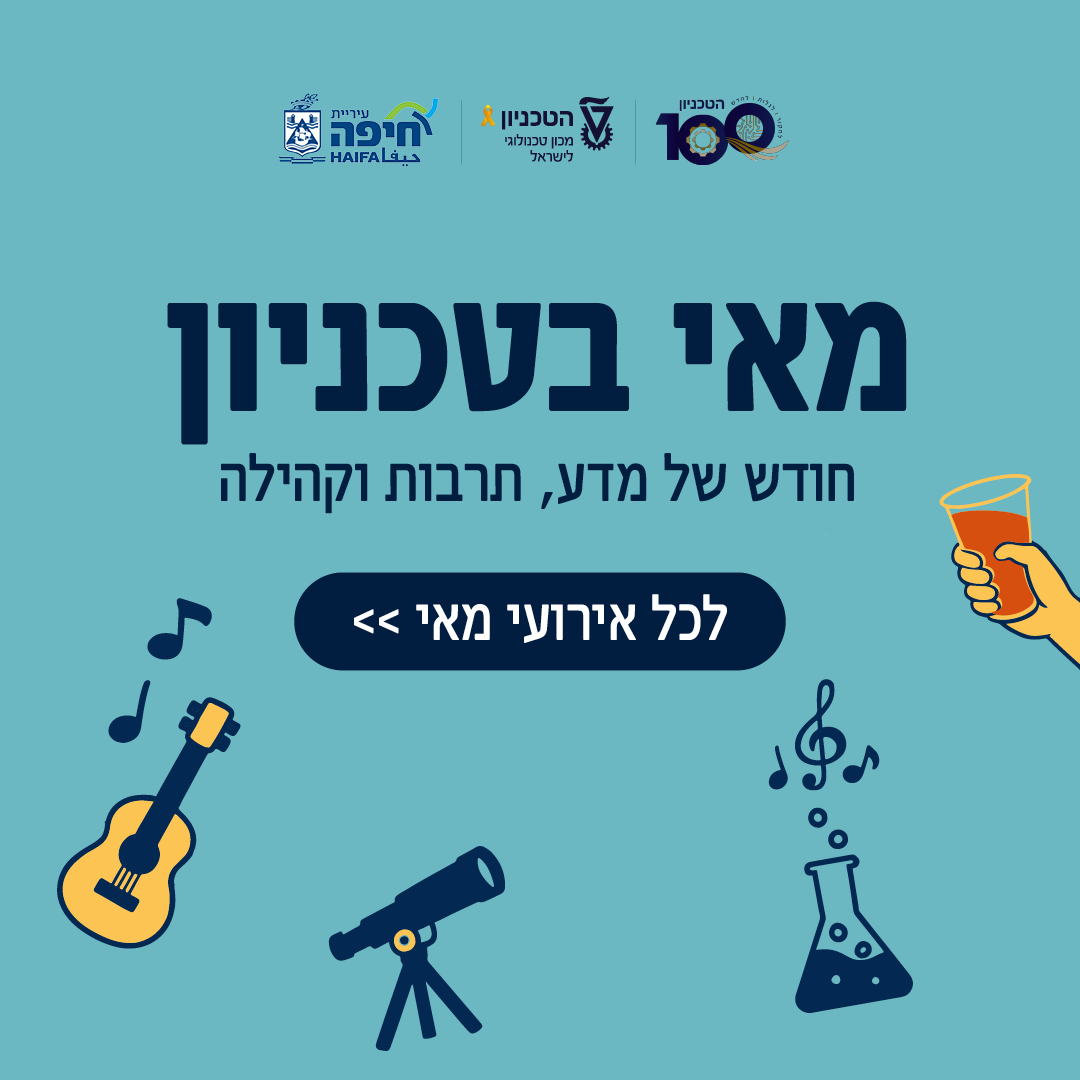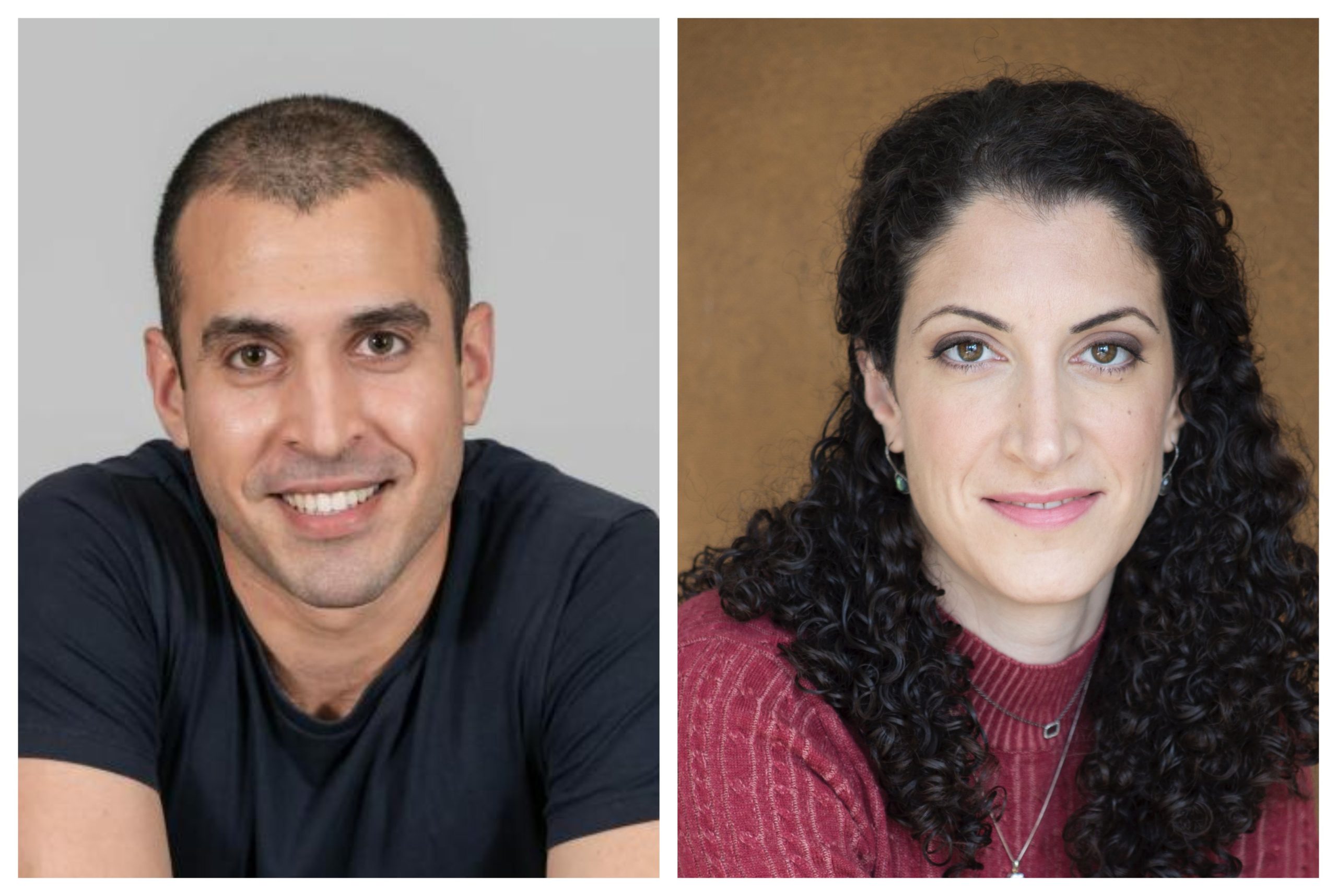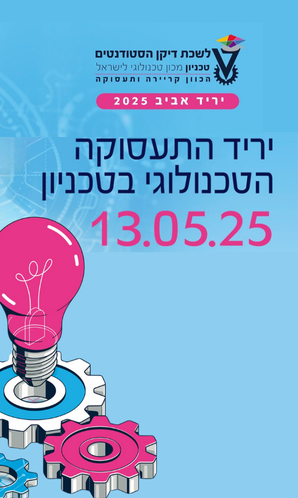מאי בטכניון
הטכניון מזמין אתכם להצטרף לחודש של תרבות, הרצאות, סיורים, הופעות חיות, מדע וקהילה

בגיליון זה תוכלו לקרוא על אירועי שנת המאה לטכניון, על 20 חברי הסגל החדשים שלנו, על הדיקנים החדשים, על סטודנטים וסטודנטיות שמנהלים קריירה ספורטיבית או אומנותית לצד הלימודים התובעניים, על פעילות מרכז החוסן החדש ועל שיתופי פעולה לאומיים ובין-לאומיים עם מוסדות אקדמיים וחברות מובילות בתעשייה, וכמובן - החדשות החמות במחקר ותגליות בתחומים רבים ובהם פיזיקה קוונטית, מיקרוביולוגיה, חיסונים, אנרגיה וסביבה, אבחון רפואי ואסטרופיזיקה.

חוקרי הפקולטה לרפואה ע"ש רפפורט זיהו "טביעת אצבע" גנטית המסייעת לנבא את יעילותם של טיפולים אלה

מאיה הוכרמן-דרימר, סטודנטית בפקולטה למדעי המחשב ע"ש טאוב, היא אחת המטפסות הספורטיביות הטובות בישראל. בקיץ הקרוב היא תחלק את זמנה בין מבחנים, גביע העולם ואליפות העולם


יריד התעסוקה הטכנולוגי בטכניון
13.05.2025 שלישי, בשעה 10:00
הוספה ליומן

אירוע היזמות השנתי של t:hub טכניון
13.05.2025 שלישי, בשעה 09:00
הוספה ליומן

פסטיבל הסטודנט המשותף בטכניון
21.05.2025 רביעי, בשעה 20:00
הוספה ליומן

29-30.5.25 חמשישי פתוח בתל אביב
29.05.2025 חמישי, בשעה 10:00
הוספה ליומן
100000
בוגרים
18
פקולטות
15000
סטודנטים
60
מרכזי מחקר
ברחבי הקמפוס